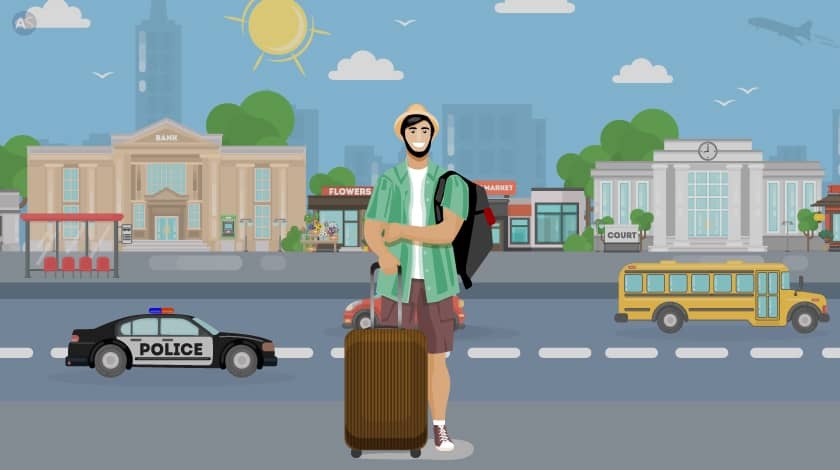
Researching Your New City: Tips for a Successful Transition – Safe Ship Moving Services
Moving to a new city can be an exciting adventure, but it’s also a significant life change that requires preparation and research. Understanding the details of your new location helps you make informed decisions and sets the stage for a smoother transition. Here Safe Ship Moving Services shares a comprehensive guide to researching your new city before you make the move.
- Understand the Cost of Living
One of the first things to consider when moving to a new city is the cost of living:
- Housing Costs:
- Research average rental prices or home costs in different neighborhoods.
- Compare costs of utilities, property taxes, and homeowners or renters insurance.
- Everyday Expenses:
- Look into the costs of groceries, dining out, transportation, and healthcare.
- Local Taxes:
- Some cities or states have higher income or sales taxes, which can impact your budget.
Tip: Use cost-of-living calculators to compare your current city with your new destination.
- Learn About Neighborhoods
Choosing the right neighborhood is essential for your comfort and convenience:
- Safety and Accessibility:
- Check crime statistics and accessibility to public transportation.
- Proximity to Work and Amenities:
- Consider commute times to work, schools, or essential services.
- Explore nearby amenities like grocery stores, gyms, parks, and healthcare facilities.
- Community Feel:
- Visit online forums, social media groups, or city guides to understand the vibe of different neighborhoods.
Example: Young professionals might prioritize vibrant downtown areas, while families may prefer quieter suburbs with good schools.
- Explore Job Opportunities and the Local Economy
If you’re relocating for reasons other than a job, researching the local economy is vital:
- Job Market:
- Investigate industries that thrive in the city and potential employers.
- Networking Opportunities:
- Look for local professional groups or networking events to build connections before your move.
- Economic Stability:
- Understand the city’s economic growth trends and unemployment rates.
Impact: Moving to a city with a thriving economy and strong job market increases your chances of financial success.
- Research Transportation and Commute Options
Knowing how you’ll get around the city is crucial for planning your daily life:
- Public Transportation:
- Check availability, cost, and reliability of buses, trains, or subways.
- Walkability and Bike-Friendliness:
- Consider whether the city is pedestrian- or bike-friendly if you prefer to avoid driving.
- Car Ownership Needs:
- Assess whether owning a car is essential, and research parking availability and costs.
Tip: Apps like Google Maps and city transit apps can help you explore commute routes ahead of time.
- Familiarize Yourself with Local Culture and Activities
Understanding the city’s lifestyle and culture helps you feel more at home:
- Community Events and Recreation:
- Research festivals, sports teams, and recreational activities in the area.
- Dining and Shopping:
- Explore the local food scene, retail options, and farmer’s markets.
- Cultural Institutions:
- Check out museums, theaters, and other cultural attractions that reflect the city’s personality.
Example: If you enjoy the outdoors, look for cities with parks, hiking trails, or waterfront areas to match your lifestyle.
- Investigate Schools and Education Options
For families, finding the right school district or educational opportunities is a top priority:
- Public vs. Private Schools:
- Compare school ratings, curriculum, and extracurricular options in your chosen neighborhoods.
- Higher Education:
- If pursuing further education, research local colleges or universities.
- Childcare Services:
- Look into daycare centers or after-school programs if applicable.
Impact: Ensuring access to quality education supports a smoother transition for children and peace of mind for parents.
- Understand Healthcare and Emergency Services
Being prepared for medical needs is crucial in a new city:
- Hospitals and Clinics:
- Locate nearby hospitals, clinics, and urgent care centers.
- Healthcare Providers:
- Check which local providers accept your insurance plan.
- Emergency Preparedness:
- Familiarize yourself with the city’s emergency response systems, such as police, fire departments, and disaster plans.
Tip: Establish relationships with a local doctor and dentist shortly after moving.
Conclusion
Researching your new city thoroughly before moving helps you make informed decisions about housing, transportation, and lifestyle needs. By understanding the cost of living, exploring neighborhoods, and familiarizing yourself with local amenities, you can create a solid foundation for a successful transition. A little preparation goes a long way in making your new city feel like home.



